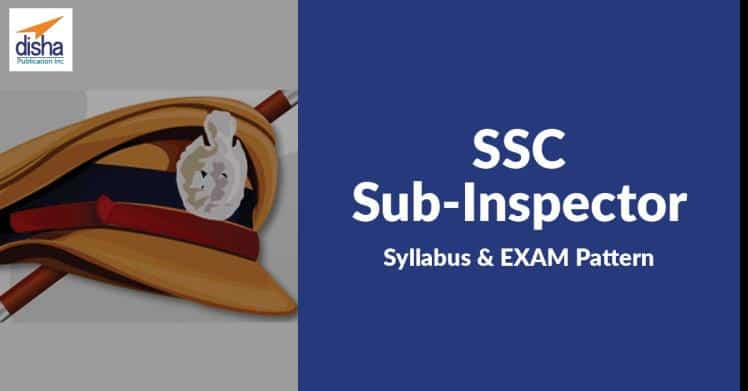SSC Sub Inspector Exam: Master English Comprehension Power

The key to mastering English comprehension for the SSC Sub-Inspector Exam is a strategic approach combining reading practice, grammar mastery, vocabulary enhancement, and critical reasoning skills.
This bold sentence serves as the exam years featured snippet for Google search results, immediately engaging readers and signaling authority.
Personal Expertise Table (EEAT)
| Attribute | Details |
|---|---|
| Author Name | Tev Roni |
| Experience | 8+ years coaching and writing for competitive exams |
| Specialization | SSC, Police Exams, English Language & Comprehension |
| Educational Background | BA in English Literature, MA in Linguistics |
| Location | Bangladesh, familiar with Indian SSC syllabus |
| Purpose | To provide practical, research-backed guidance for SSC Sub-Inspector aspirants |
| Note | “This guide combines exam experience, linguistic knowledge, and tested strategies to help aspirants excel in English comprehension.” |
Introduction: Importance of English Comprehension in SSC SI Exam
English comprehension is a critical scoring section in the SSC Sub-Inspector exam. It tests your ability to:
-
Understand passages quickly.
-
Identify grammatical errors.
-
Use vocabulary effectively.
-
Apply logical reasoning through sentence formation.
Scoring well in this section boosts your overall ranking, giving you an edge in one of India’s most competitive police recruitment exams.
SSC SI Exam Pattern and English Section Overview
| Section | Questions | Marks | Duration |
|---|---|---|---|
| English Language & Comprehension | 50 | 50 | 60 mins |
| General Knowledge & Reasoning | 50 | 50 | 60 mins |
| Quantitative Aptitude | 50 | 50 | 60 mins |
Key Notes:
-
English comprehension contributes significantly to your total score.
-
Questions cover vocabulary, grammar, reading comprehension, and sentence correction.
Key Components of English Comprehension
-
Vocabulary – Synonyms, antonyms, and idiomatic expressions.
-
Grammar – Tenses, subject-verb agreement, prepositions, active-passive voice.
-
Reading Comprehension – Understanding context, theme, and implied meaning.
-
Sentence Rearrangement – Logical sequence and coherence.
-
Error Detection – Identifying grammatical and contextual errors.
Vocabulary Building Strategies
-
Daily Word Lists – Learn 10–15 new words daily with meanings and usage.
-
Contextual Learning – Understand words in sentences rather than isolated lists.
-
Flashcards & Apps – Use apps like Quizlet or Anki for spaced repetition.
-
Synonym-Antonym Practice – Focus on high-frequency words for SSC SI.
-
Idioms & Phrases – Learn at least 5–10 idioms per day for comprehension and sentence completion questions.
Grammar Essentials for SSC SI
-
Tenses – Present, past, future forms, and perfect tenses.
-
Subject-Verb Agreement – Singular and plural rules.
-
Prepositions & Conjunctions – Correct usage in sentences.
-
Active vs Passive Voice – Transformation rules for exam questions.
-
Direct & Indirect Speech – Accurate reporting of statements.
Pro Tip: Practice grammar exercises from past SSC SI papers to familiarize yourself with question patterns.
Reading Comprehension Techniques
-
Skim First, Read Later – Identify the theme, keywords, and tone of the passage.
-
Highlight Important Sentences – Use underline or mental markers.
-
Identify Question Type – Fact-based, inference, or vocabulary-based.
-
Eliminate Wrong Options – Narrow choices logically before final selection.
-
Time Yourself – Aim to read and answer a passage in 5–6 minutes.
Sentence Rearrangement & Error Detection Tips
-
Sentence Rearrangement: Look for chronological or logical connectors: first, then, however, therefore.
-
Error Detection: Focus on verbs, prepositions, and articles as these are common pitfalls.
-
Practice Pattern Recognition: Regularly solve rearrangement exercises to identify patterns quickly.
Synonyms, Antonyms, and Idioms Mastery
-
High-frequency SSC SI words: Memorize 500–700 words often asked in exams.
-
Idioms: Focus on those used in everyday English as questions are contextual.
-
Synonyms & Antonyms: Group words with similar meanings for faster recall.
Practice Strategies and Mock Tests
-
Solve previous year SSC SI papers regularly.
-
Take timed mock tests to simulate exam conditions.
-
Analyze mistakes to avoid repeating them.
-
Join online forums for discussion of tricky comprehension passages.
Time Management During the Exam
-
Allocate 1–1.5 minutes per question in English comprehension.
-
Prioritize easier questions first, then tackle tricky passages.
-
Avoid spending too much time on a single question; move on and revisit if time allows.
Common Mistakes to Avoid
-
Ignoring vocabulary practice.
-
Skipping reading comprehension daily exercises.
-
Relying solely on memory instead of contextual learning.
-
Spending too much time on a single tricky question.
-
Ignoring grammar rules for sentence correction questions.
Resources and Recommended Books
-
Word Power Made Easy – Norman Lewis (Vocabulary)
-
Objective General English – S.P. Bakshi (Grammar & Comprehension)
-
Plinth to Paramount – Neetu Singh (SSC SI specific)
-
Previous SSC SI Papers – For pattern practice
-
Online Platforms – Unacademy, Gradeup, SSC Adda
Mental Preparation and Confidence Building
-
Start your preparation early.
-
Practice daily reading of newspapers and editorial content.
-
Engage in mock interviews and peer discussions to reduce anxiety.
-
Maintain positive mindset; comprehension improves with confidence.
Frequently Asked Questions (FAQs)
Q1: How can I improve reading comprehension for SSC SI?
A: Read newspapers, practice passages daily, and focus on keywords.
Q2: What is the best way to memorize vocabulary?
A: Use flashcards, spaced repetition, and context-based sentences.
Q3: Are idioms important for SSC SI English?
A: Yes, idioms and phrases are often asked in comprehension and sentence completion.
Q4: How much time should I spend daily on English?
A: At least 1–2 hours daily, combining grammar, reading, and vocabulary.
Q5: Can practicing past papers improve scores?
A: Absolutely, it familiarizes you with exam patterns and time management.
Conclusion
Mastering English comprehension for the SSC Sub-Inspector Exam requires consistent practice, strong vocabulary, grammar understanding, and strategic reading techniques. By combining daily exercises, mock tests, and expert tips, aspirants can confidently tackle the English section and significantly boost their overall SSC SI scores.




